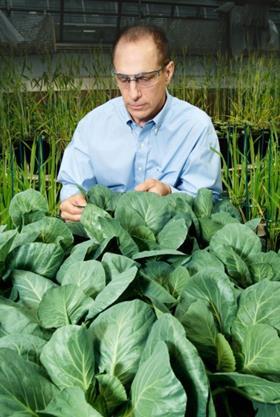
Multinational chemical company DuPont is preparing to launch a revolutionary new insecticide in all its major Asian markets by 2013.
DuPont Cyazypyr insect control SuspoEmulsion formulation (Cyazypyr) is designed to control a cross spectrum of “piercing and chewing” pests in a wide range of crops, reveals Sanjay Wadhwa, Asia Pacific insect control portfolio manager.
“DuPont Cyazypyr is a progressive crop management tool and a developmental product for which a registration application has not yet been filed,” he says. “It is not yet being sold or used anywhere in the world. Major market launches are anticipated in 2013.”
The firm describes SuspoEmulsion as a breakthrough technology that enables highly effective insect control with less active ingredient for a reduced environmental footprint. It claims the formulation’s optimal oil content ensures crop safety, while its minimised emulsifier level further reduces the environmental load.
The discovery of the sulfonylurea (SU) herbicides (thanks to pioneering work by retired DuPont scientist George Levitt) revolutionised the crop protection industry by providing growers with outstanding weed control at very low use rates, the firm says.
DuPont anticipates Cyzazapyr products will be available to growers in major Asia Pacific markets by 2013, and in some countries as early as mid-2012.
“Pending regulatory approvals, we expect the first registrations to be granted in Philippines and Indonesia,” says Mr Wadhwa.
DuPont’s presence in Asia Pacific can be traced back to the 1920s to a representative office in Shanghai, China. The first business entity, Du Pont Far East Inc, was established in Japan in 1961. Further operations were set up in Australia and Taiwan in the same decade.
Major expansion took place in the 1970s when operations in Korea, Indonesia, Malaysia, New Zealand, Philippines, Singapore and Thailand were set up. In the 1980s, the company began operating in China and in the 1990s in India and Vietnam. Most recently, entities were established in Bangladesh, Cambodia and Sri Lanka. The company now has over 50 wholly-owned facilities, more than 30 joint-ventures and three corporate R&D Centers in the region.
Tailoring DuPont’s offer to the Asia Pacific market is critical to the company’s marketing success, says Dan Ferguson, Asia Pacific marketing & strategic planning director.
“We invest heavily in developing and testing application recommendations to fit grower needs in every country where we intend to market,” he tells Asiafruit Magazine. “To be truly marketable, technologies introduced in this region should be flexible and fully compatible with country-specific farmer practices and conditions.”
But the Asia-Pacific region presents significant challenges to crop care companies, adds Mr Ferguson. The area’s rich diversity in terms of crops, seasons, growing conditions, pests and farm models can test a firm’s mettle.
“Here we find 80 per cent of the world's farmers with landholdings ranging from less than a hectare to thousands of hectares,” he says.
“Finding answers to grower needs in every type of situation is a big challenge, but we have to start somewhere, such as keeping our focus on key crops for Asia Pacific like rice, fruit and vegetables.”
Another challenge is communicating to the millions of farmers in Asia Pacific, given range of languages, cultures, regulations and levels of agricultural practices across the region.
“The more diverse markets of Asia Pacific compared with other regions in the world further translates to the need for new products that are clearly unique, differentiated and offer added value to growers,” says Mr Ferguson.
There is one blot on the landscape, however. In major markets like China, India and Indonesia, the entry of counterfeit crop protection products has become a major setback, according to Mr Ferguson.
“Counterfeits have inflicted damage on farmers’ crops and livelihood and posed threats to the environment and the safety of food supply,” he says. “The industry is therefore engaged in anti-counterfeiting programmes to ensure high quality standards and the protection of consumer rights.”
DuPont also keeps in mind Asia Pacific growers’ expansion into global markets when considering which products and services to offer.
“Today's exporters have to grow produce in ways acceptable to importing countries,” says Mr Ferguson. “The specifications often include maximum residue limits (MRLs) of crop protection products used on crops. Hence, we have to make sure our products and directions for use enable growers' participation in global trade. DuPont provides recommendations and product advice for specific export situations through our DuPont SmoothTrade service.”
DuPont Crop Protection has a rich pipeline of new products that well suit Asia Pacific agriculture, particularly on rice, vegetable and fruit crops, he adds.
“These new discovery products represent all three major types of crop protection products for insect, disease and weed control,” says Mr Ferguson. “We expect to be developing and commercialising these new products continuously in the future.”
DuPont is a science-based products and services company operating in more than 90 countries. Founded in 1802 in the US by French émigré and ‘gentleman scientist’ E.I. DuPont, the firm now offers a wide range of products and services for markets including agriculture and food; building and construction; communications; and transportation.






No comments yet